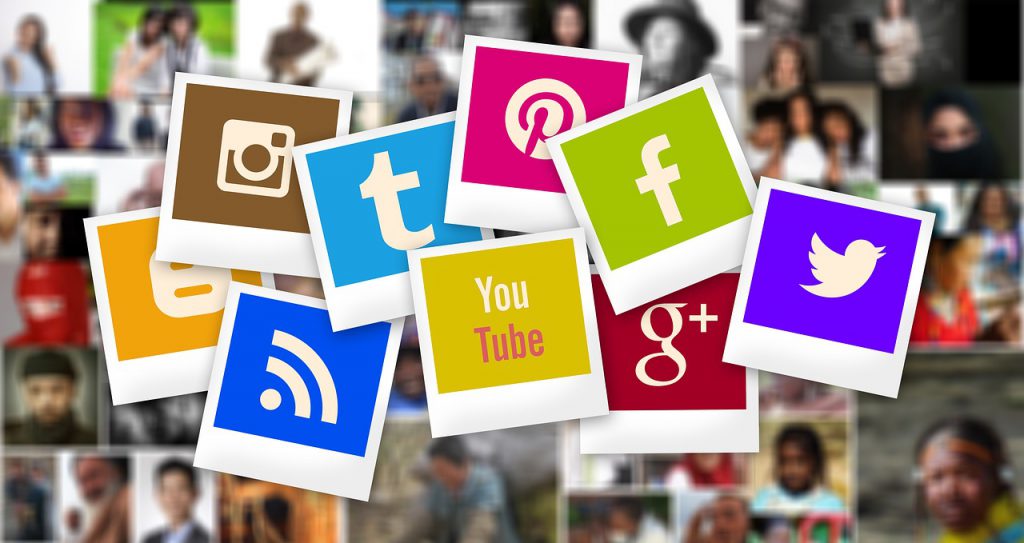A Guide To… smartphones and teenage mental health
This Guide To considers some of the research, opinion and insights around how cell phones might negatively impact teenagers’ mental health.
Walking into my local coffee shop recently I saw a group of teenagers sitting around a table. As they sipped on their frappes and bubble teas, I couldn’t help notice something unusual. Instead of chatting away about friends, crushes and schoolwork, they were staring at their phones, swiping in silence.
Teenagers today have never known a world without mobile phones. The idea of searching for answers to burning questions in the pages of a dusty encyclopedia, or waiting for a library book to come off loan will seem completely alien to them. In our information age, schooling, hobbies and socialising have all become digitalised. While this allows our children to have much more access to positive educational tools when they need them, it also opens up a whole new world to navigate. That world can sometimes seem in conflict with how human beings seem to be naturally programmed to interact.
The answer to the question ‘do mobile phones make teenagers depressed’ isn’t necessarily a straightforward one. We look at some of the arguments for, and against, this hypothesis and offer insights to foster a healthy relationship between your teen and their cell.
Today’s smartphones are optimised for usability – so much so that I have witnessed my 10 month old baby pick my iPhone off the floor and seem to instinctively know how to use her fingertips to bring it to life. The bright colourful apps, graphics and intuitive functioning contributes to the smartphone’s allure. It’s this ‘addictiveness’ that is causing much debate in the psychological and medical research fields.
As technology evolves and we become ever more reliant on having a mobile phone to go about our daily business, it’s unrealistic to expect our young people to not want, or need a cell phone. Everything from our healthcare records, banking and even home utilities controls are stored in our pocket. This digitisation shows no sign of stopping its tangle into our daily lives.
According to Pew Research Centre, 81% of Americans own smartphones. Alongside this rise has come a new vocabulary to define emerging cell phone behaviours.‘Nomophobia’ – the fear of going without your phone’ and ‘phantom vibrations’ – the feeling that your phone is alerting you when it really isn’t, are just two examples.
As a parent or guardian of a young person, their wellbeing is your top priority. This is true for physical health, and the things we can’t see – their emotions.
Can cell phones cause depression?
It’s certainly not a comfort to today’s parents to know that teenage depression rates are on the rise. Many researchers and social commentators believe we are sitting in the middle of a mental health crisis with our young people. And the problem seems to be worse with girls.
Depression rates are rising across the board. According to Pew Research Centre, 13% of US teens reported a major depressive episode in the past year (2017). And additional figures show that suicide rates for adolescent girls have doubled since 2007. In 2015, three times as many 10 – 14 year old girls were admitted to US emergency rooms due to self harm than in 2010.
It is hard to pinpoint one particular reason why depression rates continue to climb at alarming rates in our young people. For many researchers and commentators, the timing between the spike in these reports and the introduction of the smartphone cannot be ignored.
It is the cultural, technological shift in which young people born after 1995 have never known a life without mobile phones, is what many believe is a major contributing factor to the disturbing changes in the mental and emotional wellbeing of teenagers today.
Professor of Psychology at San Diego State University, Jean M. Twenge, the expert who coined the term, ‘iGen’, published her infamously provocative book extract in The Atlantic back in 2017. Twenge attests that research shows teenagers across all social, economic and ethnic backgrounds are more likely to report symptoms of depression, the more time they spend on their phones.
It made for a shocking read. Teens who spend more than three hours a day on social media are 35% more likely to have a risk factor for suicide. And the more teens used Facebook, the unhappier they reported they were.
When it came to feelings of loneliness, teen reports spiked in 2013 and the rates have continued to climb year on year. Conversely, Twenge found that the teens that had hobbies, real life social routines and spent more time with friends and family off their mobiles, were much less likely to report these loneliness factors.
How can mobile phones affect mental health?
The jury is out on this particular question as many researchers argue that a causal link between the two factors hasn’t been studied. It’s not the mobile phone or cell phone itself that’s causing depression in young people, but potentially the knock on social effects and impact that time spent using a device can create. Let’s take a deeper look at what we mean by that.
Faceless communication and ‘keyboard warriors’
While modern technology and digital communications have opened up a world of possibilities for all of us, they’ve also given rise to less positive behaviours, trends and social interactions. Take trolls for instance. These anonymous social commenters provoke hate, upset and aggression behind the relative safety of their screens. It’s this ‘facelessness’ that allows users to say – and do – things that they wouldn’t typically do ‘IRL’.
You may be familiar with the acronym ‘FOMO’ – Fear of Missing Out’ – it’s a phenomenon that has only been defined in recent years, and seems to be one the key factors that’s driving reports of unhappiness, particularly in young girls.
Glamourising our social interactions can contribute to the ostracisation of others and psychologists believe that it is this subtly aggressive behaviour that girls display when bullying others. Watching friends hang out without them is one of the key things that teenage girls are aware of when linking their own mood with their social media use.
“Comparison is the thief of joy”
So says the popular positive mantra. Spending so much time on social media opens a window into the lives of others that we wouldn’t usually be privy to. It also allows people to control and curate a particular version of themselves for others to see. It is this ‘comparison’ factor that many people believe is contributing to negative, and unrealistic expectations of life for young people. Facebook’s own research revealed this to be true.
Until a year ago, Frances Haughen was an unknown Facebook (or Meta as it’s now known) employee. Haughen worked behind the scenes as a data strategist. She is now known globally as the whistleblower who lifted the lid on the news that the platform knew that its products, chiefly Instagram, was damaging the health of young girls.
“We make body image worse for young girls,” and “Thirty-two per cent of teen girls said that when they felt bad about their bodies, Instagram made them feel worse,” are just two examples of research statements from internal presentations at the company. The company was in full knowledge of their own damning research, yet did nothing to address their own insights that the social media channel was having a negative effect on the self esteem of young women.
Filters, photoshopping, and undisclosed sponsorships and advertisements all contribute to an unrealistic and distorted world view for those who are exposed to them on a regular basis.
Quoted in The Guardian, a spokesperson for the campaigning group, 5Rights Foundation, said: “Facebook’s own research is a devastating indictment of the carelessness with which it, and the tech sector more broadly, treats children.
“In pursuit of profit these companies are stealing children’s time, self-esteem and mental health, and sometimes tragically their lives … This is an entirely human-made world, largely privately owned, designed to optimise for commercial purposes – it does not have to be like this. It is time to optimise for the safety, rights and wellbeing of kids first – and then, only then – profit.”
Sleep deprivation and cell phones
Think of your own cell phone habits. Do you keep it by the bedside? Or perhaps under your pillow. Is it the first thing you reach for in a morning? Smartphone use has been associated with a variety of poor sleep outcomes, and a lack of good quality shut-eye is a known risk-factor for low mood.
Many experts agree that nine hours is the optimum amount of sleep that teens need. Research has found that the more time we spend using our phones, the poorer our quality of sleep. The blue light emitted by mobile devices is linked to disruptions in the release of the sleep hormone, melatonin. It has also been suggested that exposure to blue light can impact on the REM (deep sleep) cycle we experience, and if we don’t get enough deep sleep our mood is impacted.
According to Sleep.org, the blue light emitted from our mobile phones can have an even greater effect on children, who are more sensitive to it. Sleep is absolutely vital for the healthy development of children at all ages. Therefore it’s recommended to say goodnight to our mobile phones at least 20 minutes before we turn in for the night.
Information overload
With so much information at our fingertips comes the risk of internet overload.
Within seconds your phone can answer burning questions, take you shopping, allow you to play video games, listen to stories…it’s a lot. Research from data scientists at ESRI UK found that a third of us feel stressed about the amount of data we come across on a daily basis. This can also be true for children. The mobile phone is no longer just a device to call others, it’s a personal assistant, computer, and vessel for others to be in contact with us at all times.
This constant connection can be overwhelming for adults to deal with, and so it’s not unreasonable to assume that children are feeling stressed and anxious by the constant companionship of their mobile phones.
How do I know if my teenager’s mobile phone is making them depressed?
Before we panic, throw away all our devices and try to convince our plugged-in teens to ditch their mobile phones, let’s take a moment to consider the alternatives.
Many researchers contest that there isn’t actually a causal link between depression and smartphone usage, but there are correlations. There are also questions about the way data is collected and categorised. It begs the question, are depressed teenagers more likely to spend more time on social media or is spending time on social media causing depression?
Studies that track ‘screen time’ can also be unreliable as the activities carried out on screens are so broad. Those studies that include self-reporting data can also be taken with a pinch of salt, as many people fail to accurately report time properly.
How to recognise the signs that your teenager’s mobile phone is affecting their mental health
Educational Consultant, Monique Hicks, spoke to Parents about the following red flags to watch out for with your teen’s cell phone usage:
- Constant dual screening and flipping between apps, games, social platforms
- A change in mood when they’re not using their phone – being impatient, irritable and restless
- Disturbances in their sleep
- Losing friends, or having more challenges with their social interactions
One, or all of these behaviours could indicate that the relationship between your teenager and their cell phone needs a reset.
The signs above can also be indications that something is not right with your teens’ overall mental wellbeing. Teenage depression is a serious and rising global issue. It is sometimes difficult for parents to spot ‘typical’ teen behaviours with more serious symptoms that could indicate depression. According to the Mayo Clinic, parents should also be vigilant for the following indications that something may not be all well with their child’s mental health:
- Loss of energy or tiredness
- Sleeping too much, or too little
- Decreased or increased appetite and weight gain or loss
- Using alcohol or drugs
- Not paying attention to their personal hygiene or appearance
- Disruptive, angry behaviour
- Unexplained body aches, pains and complaints
- Self harm
- Feelings of suicide or making a suicide plan
If you notice any of the signs or symptoms outlined above, please speak to a health professional immediately.
How to moderate teenagers’ cell phone use
The job of parenting seems to get tougher year on year.
As technology develops at warp speed, it’s easy to feel helpless or left behind when it comes to the activities your child is carrying out online.
Do not fear. There are some simple steps you can take to help monitor your teen’s mobile phone usage, and empower yourself, and your family, to use technology in the most positive way.
Get educated
Life is busy, but the more you arm yourself with knowledge, the more empowered you feel. Find out what apps your teen is using regularly and keep up with what they’re about. How is the news reporting on them? Give them a try for yourself. Confidence is key when dealing with digital developments.
Encourage real world interactions
Encourage and enable the hobbies and interests that your child has offline. Research shows that teens report more positive indicators for happiness when they spend time in the ‘real world’. So if they’re showing an interest in something non-digital, embrace it!
Family time
Ensure you keep a diary date every week with your family that is strictly no-phones. It could be a games night, or a trip to the park or to see other relatives. The more you can do to encourage these real world interactions, the better it is for the social happiness of your teen.
Limits and boundaries
You can use an app like Kidslox to monitor, reduce and stop the amount of time teens are using on their devices. When it comes to using it with older children, we always recommend it be done with a collaborative approach and that you are open and honest about why it’s important to set limits. Use apps like Kidslox as a positive thing, that enables teens to manage their own usage as well as your peace of mind.
Be emotionally open
Be open to talking to your children about your own (age appropriate, of course) emotions and encourage children of all ages to talk about their feelings. If it’s not something you’re used to, go slowly and always create a safe space for kids to feel like they can share. If you see that your child is spending long periods alone, or seems less open to talking than usual, consider seeking additional support for your family. Organisations such as www.youngminds.org.uk are best placed to help.






